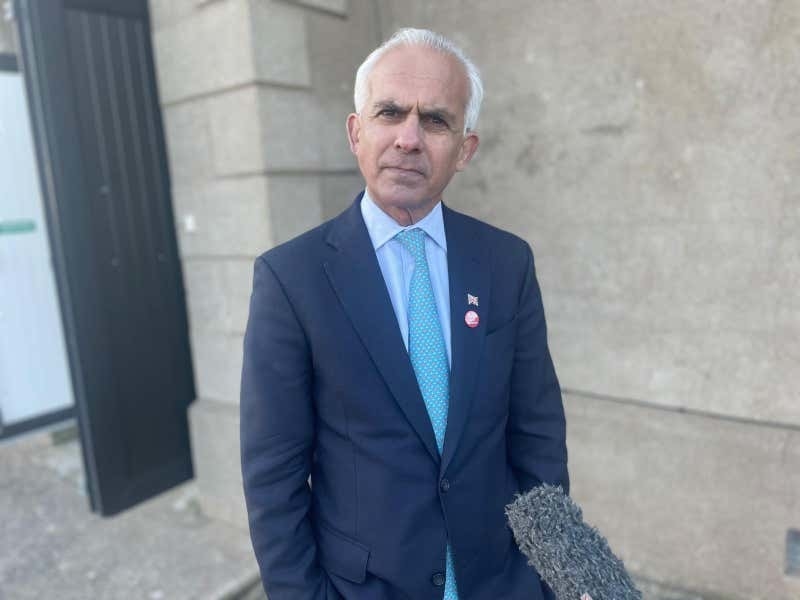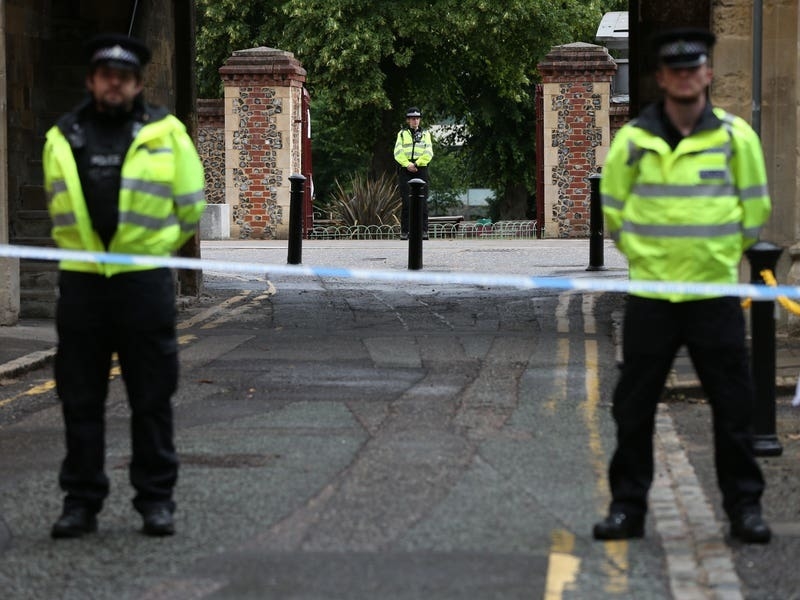On her new role
Sue’s predecessor, Tracy Garrad, saw through the ring-fencing of HSBC in the Channel Islands from the rest of the group – something all banks had to do following the financial crisis. It means that Sue inherited what is effectively a stand-alone bank, and it was one of the attractions of the job.
‘Being a country CEO is the aspiration,’ she said. ‘This was just too good an opportunity. Out of all of the markets that you would have the opportunity to be CEO of, having a market like the Channel Islands and Isle of Man, where you have a strategically important market for the group, that’s important for me. We offer all lines of business, so we do everything HSBC has to offer and not all markets do that.
‘Prior to ring-fencing, I would say that this job wouldn’t have been necessarily as attractive to me. The domestic business, the Island business, was previously very much integrated into the UK bank, and really it was just looking after the international side of the business. Post ring-fencing, you have it all.’
On the group’s challenges
The HSBC Group itself has been hitting the headlines for all the wrong reasons, there have been a series of very large deferred prosecution agreement fines in the US and Europe, the most recent being a $192 million fine after its Swiss arm helped US customers hide assets from the tax authorities, while the biggest was a $1.9 billion penalty for failing to prevent money laundering by Mexican drug cartels in 2012. There are others too. In August it was announced that HSBC’s chief executive John Flint was leaving after just 18 months, and there were to be 4,000 job losses. In addition, third-quarter results were disappointing, seeing profits fall.
So will the job losses impact upon staff in Jersey and the Channel Islands? Sue does not think so.
‘We are strategically important,’ she said. ‘There is a growth agenda. We’ve committed all of the lines of business to this market, we deliver really strong returns. So actually, I think you will not see any major kind of restructuring here as part of those global initiatives.
‘That said, we will continue to review our operating models. We still have a part to play with corporate citizenship, and where things can be done quicker, faster, better for our customers and our people, we will make those changes. But just to reiterate, this is an important growth market for the region and for the group, and therefore in delivering good returns, I don’t think this will be the focus.’
Internationally, HSBC, like the other banks and most businesses, has seen geopolitical uncertainty affecting its customers and ultimately its own business, but again Sue is fairly positive.
‘We’re not seeing massive outflows or inflows of business because of what’s going on around the world. Obviously, we have a big presence in Hong Kong. And we have an expat business here. And it does present an opportunity for people in Hong Kong who are worried about the uncertainty there to transfer business to us and still feel part of the HSBC family and just have that little bit of security. So we have seen some of that.
‘For Brexit and some of those other challenges, we’re not seeing a lot of activity as in people panicking or worrying about it, but again, the uncertainty itself means we just have to be there for customers to help them navigate some of those choppy waters.
‘In terms of the low interest rate environment, that looks like it’s going to get lower, and the impact on foreign exchange, the value of Sterling, that does impact on business models – our business model and also our customers’ business models – and just helping them be ready for now and the future is top of the agenda.’
On Jersey
Sue is already working closely with the JFSC and Jersey Finance and thinks they and the government are doing a good job in positioning the Island as a reputable finance centre.
‘I think the reputation of the Island, internationally, as a really safe place to do business and a really strong reputation, that’s good for HSBC as a business because we’re operating at the highest standards anyway and we want to be in a market that we feel supports that culture. I think this is a very good place to be from a financial services provider perspective.’
What legacy would she like to leave?
‘It’s not so much a legacy of we wrote a strategy or we delivered x million in results, it’s how we create a culture and an environment where we can be as successful as the opportunity that is clearly there. My legacy is less about me and more about the people in the business and the impact we have on communities and being a large employer in Jersey.
‘It’s about our people feeling empowered and enabled to be their best and deliver exactly what customers are asking for.
‘I use a phrase – it is important to me to give as much to society and the communities in which we operate, as it is to our shareholders. So that’s what I want HSBC to be known for. It’s to be part of the Island in its entirety; because if Jersey thrives we thrive.
‘Creating that environment where people will give discretionary effort, where they are treated as adults, where we are employing people because of what they bring and then allowing them to bring that and not stifling it, will get us better business results. That’s the legacy, because then that business continues after you leave.
‘As an industry, we’ve too long had a culture where bankers look a certain way and behave a certain way. I don’t think that aids decision-making and it doesn’t help us in the challenging environments that we face. The only way to prevent that in the future is to have that difference of thought, so that people can spot what’s coming and make better decisions.
‘So that is my job in a nutshell, to create that, because the rest of it, the business strategy, I think is very clear.’






